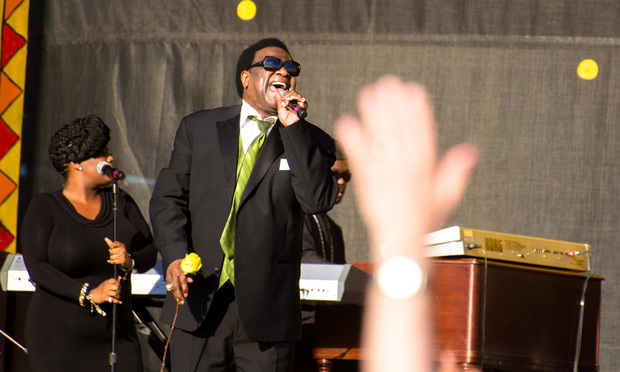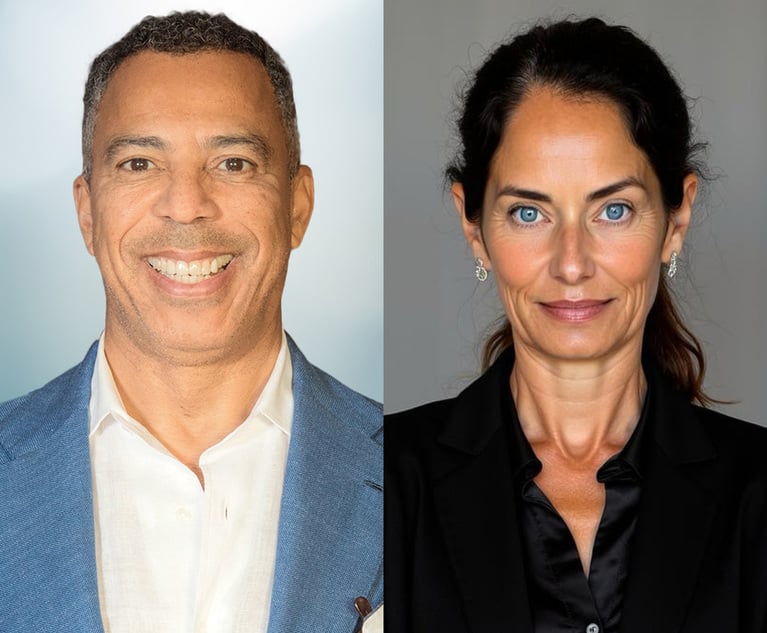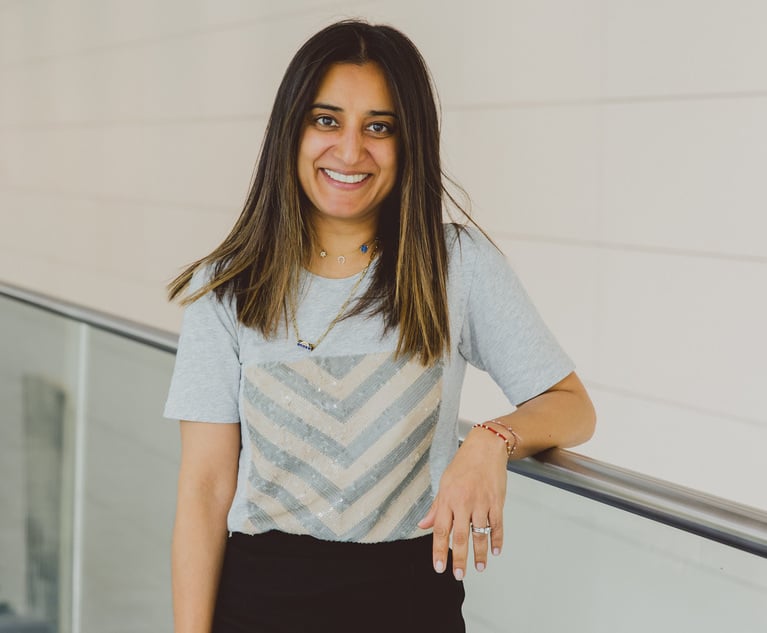Ninth Circuit Says Remastered Songs Not Original in Win for Pre-1972 Artists
Even if engineers make the sound brighter or cleaner, they do not alter the expressive character and identity of the original recording. The decision wipes away a creative defense mounted by broadcasting companies.
August 20, 2018 at 04:25 PM
4 minute read
 Al Green performing at the New Orleans Jazz & Heritage Festival in 2012. (Photo: thepipe26/Wikimedia Commons)
Al Green performing at the New Orleans Jazz & Heritage Festival in 2012. (Photo: thepipe26/Wikimedia Commons)With an assist from Toucan Sam and Tony Bennett, owners of pre-1972 sound recordings no longer have to worry about losing their common law copyright claims to a creative theory developed by CBS and Irell & Manella.
The U.S. Court of Appeals for the Ninth Circuit ruled Monday that analog recordings digitally remastered for CDs during the 1980s and 1990s are not original derivative works governed by post-1972 federal copyright law.
ABS Entertainment v. CBS Corp. reverses a judgment of U.S. District Judge Percy Anderson that threw a monkey wrench into efforts by older artists and the owners of their rights to enforce state and common law copyrights. The California Supreme Court is weighing the issue right now, but some broadcasters have already settled out of cases for eight- and nine-figure sums.
“A remastering, for example, of Tony Bennett's 'I Left My Heart in San Francisco' recording from its original analog format into digital format, even with declicking, noise reduction and small changes in volume or emphasis, is no less Bennett's 'I Left My Heart in San Francisco' recording,” visiting Federal Circuit Judge Richard Linn wrote for a unanimous panel Monday.
“It retains the same essential character and identity as the underlying original sound recording, notwithstanding the presence of trivial, minor or insignificant changes from the original,” Linn wrote. “That is so, even if the digital version would be perceived by a listener to be a brighter or cleaner rendition.”
Judges Marsha Berzon and Paul Watford concurred.
Linn buttressed the holding with a 1997 Ninth Circuit decision involving inflatable versions of cereal box characters like Fruit Loops' Toucan Sam. Though the inflatable versions included different facial features and expression, any reasonable observer would have seen them as replicas. “The essential character and identity of each were not changed,” Linn wrote.
Before 1972, federal copyright law made no mention of sound recordings. Instead, it only covered performances. But the California Legislature has granted authors “exclusive ownership” of pre-1972 recordings. Music owners say the Legislature was trying to cover the gap in federal law and have been suing over the playing of those old recordings.
 Robert Allen, McKool Smith
Robert Allen, McKool SmithMcKool Smith and Robert Allen, a former legal affairs chief for Universal Music Publishing Group, represent a class that holds copyrights in the music of Al Green, the Everly Brothers, Mahalia Jackson and others. “When Al Green and his band went into the studio and recorded their vocal and instrumental performances, that was the date that sounds were initially fixed in a tangible medium,” Allen told the Ninth Circuit last fall. The fact that sound engineers may have later optimized them for digital transmission didn't create new derivative works, he argued.
Monday's decision “completely vindicates our clients,” he said in a written statement.
Robert Schwartz, the Irell & Manella partner who masterminded the defense for CBS, said engineers spend weeks and even months creating a new aesthetic when remastering recordings. That lets the music owners market it as, “If you want to hear the Everly Brothers as you've never heard them before, you need to buy this new remaster.”
“But it's the same recording,” Linn told him at the argument.
“It's not the same recording,” Schwartz replied. “It is the same studio performance.” But the engineer may say, “I want them to hear the bass line more. Or I want them to hear the background singers more.”
That, Schwartz said, “is creative expression … sufficient to create a new work that is subject to copyright.”
Linn had the last word Monday. He also relied on a Tenth Circuit opinion by then-Judge Neil Gorsuch, which held that using digital wire frames to create a 3D replica of an automobile did not create an original work.
“From the foregoing,” Linn wrote, “it should be evident that a remastered sound recording is not eligible for independent copyright protection as a derivative work unless its essential character and identity reflect a level of independent sound recording authorship that makes it a variation.”
This content has been archived. It is available through our partners, LexisNexis® and Bloomberg Law.
To view this content, please continue to their sites.
Not a Lexis Subscriber?
Subscribe Now
Not a Bloomberg Law Subscriber?
Subscribe Now
NOT FOR REPRINT
© 2025 ALM Global, LLC, All Rights Reserved. Request academic re-use from www.copyright.com. All other uses, submit a request to [email protected]. For more information visit Asset & Logo Licensing.
You Might Like
View All
Growth of California Firms Exceeded Expectations, Survey of Managing Partners Says
5 minute read
Google Makes Appeal to Overturn Jury Verdict Branding the Play Store as an Illegal Monopoly
5 minute read
Eight Years On, A&O Shearman’s Fuse Legal Tech Incubator Is Still Evolving
4 minute read
Chicago Law Requiring Women, Minority Ownership Stake in Casinos Is Unconstitutional, New Suit Claims
5 minute readTrending Stories
Who Got The Work
J. Brugh Lower of Gibbons has entered an appearance for industrial equipment supplier Devco Corporation in a pending trademark infringement lawsuit. The suit, accusing the defendant of selling knock-off Graco products, was filed Dec. 18 in New Jersey District Court by Rivkin Radler on behalf of Graco Inc. and Graco Minnesota. The case, assigned to U.S. District Judge Zahid N. Quraishi, is 3:24-cv-11294, Graco Inc. et al v. Devco Corporation.
Who Got The Work
Rebecca Maller-Stein and Kent A. Yalowitz of Arnold & Porter Kaye Scholer have entered their appearances for Hanaco Venture Capital and its executives, Lior Prosor and David Frankel, in a pending securities lawsuit. The action, filed on Dec. 24 in New York Southern District Court by Zell, Aron & Co. on behalf of Goldeneye Advisors, accuses the defendants of negligently and fraudulently managing the plaintiff's $1 million investment. The case, assigned to U.S. District Judge Vernon S. Broderick, is 1:24-cv-09918, Goldeneye Advisors, LLC v. Hanaco Venture Capital, Ltd. et al.
Who Got The Work
Attorneys from A&O Shearman has stepped in as defense counsel for Toronto-Dominion Bank and other defendants in a pending securities class action. The suit, filed Dec. 11 in New York Southern District Court by Bleichmar Fonti & Auld, accuses the defendants of concealing the bank's 'pervasive' deficiencies in regards to its compliance with the Bank Secrecy Act and the quality of its anti-money laundering controls. The case, assigned to U.S. District Judge Arun Subramanian, is 1:24-cv-09445, Gonzalez v. The Toronto-Dominion Bank et al.
Who Got The Work
Crown Castle International, a Pennsylvania company providing shared communications infrastructure, has turned to Luke D. Wolf of Gordon Rees Scully Mansukhani to fend off a pending breach-of-contract lawsuit. The court action, filed Nov. 25 in Michigan Eastern District Court by Hooper Hathaway PC on behalf of The Town Residences LLC, accuses Crown Castle of failing to transfer approximately $30,000 in utility payments from T-Mobile in breach of a roof-top lease and assignment agreement. The case, assigned to U.S. District Judge Susan K. Declercq, is 2:24-cv-13131, The Town Residences LLC v. T-Mobile US, Inc. et al.
Who Got The Work
Wilfred P. Coronato and Daniel M. Schwartz of McCarter & English have stepped in as defense counsel to Electrolux Home Products Inc. in a pending product liability lawsuit. The court action, filed Nov. 26 in New York Eastern District Court by Poulos Lopiccolo PC and Nagel Rice LLP on behalf of David Stern, alleges that the defendant's refrigerators’ drawers and shelving repeatedly break and fall apart within months after purchase. The case, assigned to U.S. District Judge Joan M. Azrack, is 2:24-cv-08204, Stern v. Electrolux Home Products, Inc.
Featured Firms
Law Offices of Gary Martin Hays & Associates, P.C.
(470) 294-1674
Law Offices of Mark E. Salomone
(857) 444-6468
Smith & Hassler
(713) 739-1250






